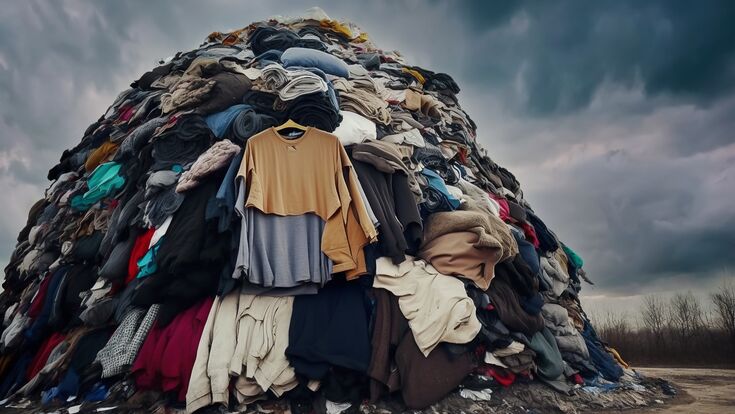Ecodesign Regulation : EU27 want to ban destruction of unsold clothing

European textile consumption has the fourth largest impact on the environment and climate change after food, housing and mobility. Each year, about 5.8 million tonnes of textiles are discarded in the EU, or about 11kg per person, much of which is landfilled or incinerated. The Ecodesign Regulation - a key building block of the European Green Deal, which aims to make the EU carbon neutral by 2050 – the EU wants to tackle this problem.
In a surprising push, the EU27 agreed on a ban on the destruction of unsold textiles. According to the European Commission's original proposal for March 2022, the Commission itself would have had to decide at a later stage whether to introduce a destruction ban.
Nevertheless, EU governments have reached an agreement that a ban on the destruction of unsold clothing should apply straight away, rather than waiting for the EU executive to carry out an assessment that could have taken up to three years.
Ebba Busch, the Swedish minister in charge of the negotiations among the EU member states said: “The Ecodesign regulation will make sure that products sold in the EU market are fit and ready for the green transition.”
Stay connected - subscribe to our newsletters!
Distruction ban and digital product pass
According to the regulation, mid-sized companies employing fewer than 250 workers would have a four-year transition period, while the small businesses with under 50 employees would be exempt.
Spain, which takes over the six-month EU presidency in July, is expected to negotiate the law with representatives of the European Parliament. Parliament has yet to take a position, but it appears to favour a ban on the destruction of unsold textiles and electronic equipment.
German State Secretary for the Environment Christiane Rohleder expressed her satisfaction: "Our planet's resources are finite and we need to be more aware of how we use them. Sustainable products should therefore become the standard in the EU. In the future, only products that are durable, repairable, reusable and recyclable and that meet the requirements for sustainable products will be allowed on the EU market.

The senseless destruction of usable goods will be banned. This is particularly important in the case of textiles, where new goods are currently destroyed on a massive scale."
The EU27 also agreed on the introduction of the Digital Product Passport. This is supposed to help consumers make more informed choices by demonstrating a product's environmental sustainability. "With the Digital Product Passport, we are also strengthening the rights of consumers across the EU, who will be fully informed about the environmental footprint of each product, allowing them to make a conscious choice for the most sustainable products," Rohleder added.
Ecodesign for all physical products
Unlike the current Ecodesign Directive, the new regulation will apply to almost all physical products, not just energy-related ones. In the future, the Ecodesign Regulation will provide the legal framework to impose environmental and resource protection requirements on products. In the future, new product regulations will include requirements such as durability, interchangeability of parts, reparability, reusability, resource efficiency or carbon footprint. The Ecodesign Regulation takes the whole life cycle into account. It also encourages the use of recycled materials. This is essential to ensure that more materials are recycled and kept in circulation.
Once the EU Member States have decided on their "general approach", they will negotiate the final draft of the Ecodesign Regulation with the Commission and the European Parliament in the so-called trilogue procedure. The Regulation will then be finally adopted by the EU Parliament and the Council of Ministers.

